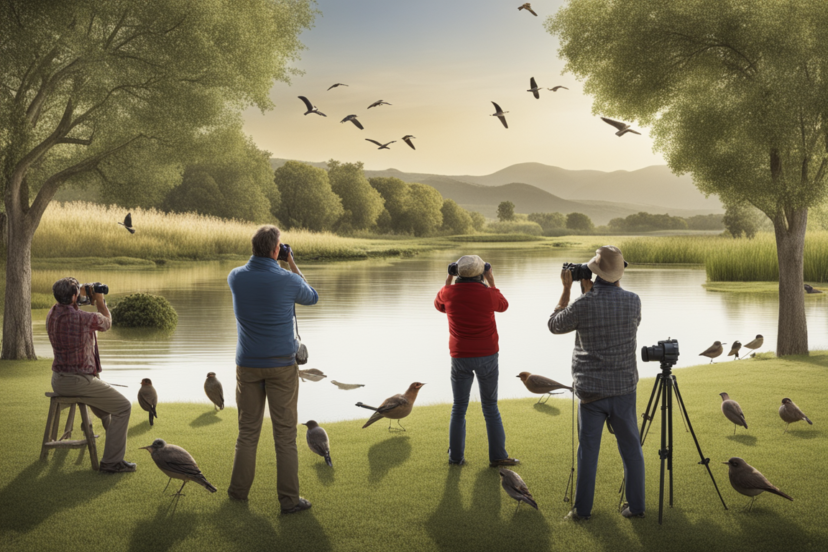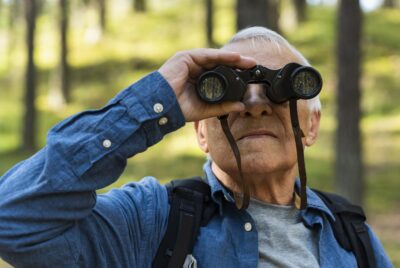What Are the Rules of Birding? A Guide to Responsible Birdwatching
Birding, or birdwatching, is a fun and rewarding activity that allows us to connect with nature and observe the amazing diversity of bird life. But with great joy comes great responsibility! Just like any outdoor activity, there are some important rules and guidelines to follow when birding. These rules are not just about keeping you safe, but also about protecting the birds and their habitats. By being a responsible birder, you can contribute to bird conservation and ensure that future generations can enjoy these feathered friends too!
Why Are Birding Rules Important?
Think of these rules as a way to show respect for the birds and their world. Imagine trying to enjoy a peaceful picnic if someone kept yelling right next to you! Birds deserve that same sense of peace and security. Following these guidelines also helps protect delicate habitats and ensures everyone, from seasoned birders to curious beginners or beginning birders, can have a positive experience.
Respecting the Wildlife & Habitat:
1. Leave No Trace: Imagine you’re a tiny bird walking on giant footprints. Stick to designated trails to avoid trampling delicate plants and creatures. Remember, their homes are underfoot!
2. Give Birds Breathing Room: Imagine you’re trying to have a picnic and someone keeps poking you. Keep your distance from nests, especially during nesting season. Loud noises and close approaches can stress birds and disrupt their important activities.
3. Ask Permission First: Imagine knocking before entering someone’s house. Always ask permission before entering private property, even if it looks like a great birding spot. Respecting landowners helps to ensure continued access to these areas for everyone.
4. Share the Space: Imagine having a park all to yourself, then a bunch of noisy people arrive. Be mindful of other animals like mammals and reptiles. Avoid disturbing their habitats and give them space to enjoy their homes too.
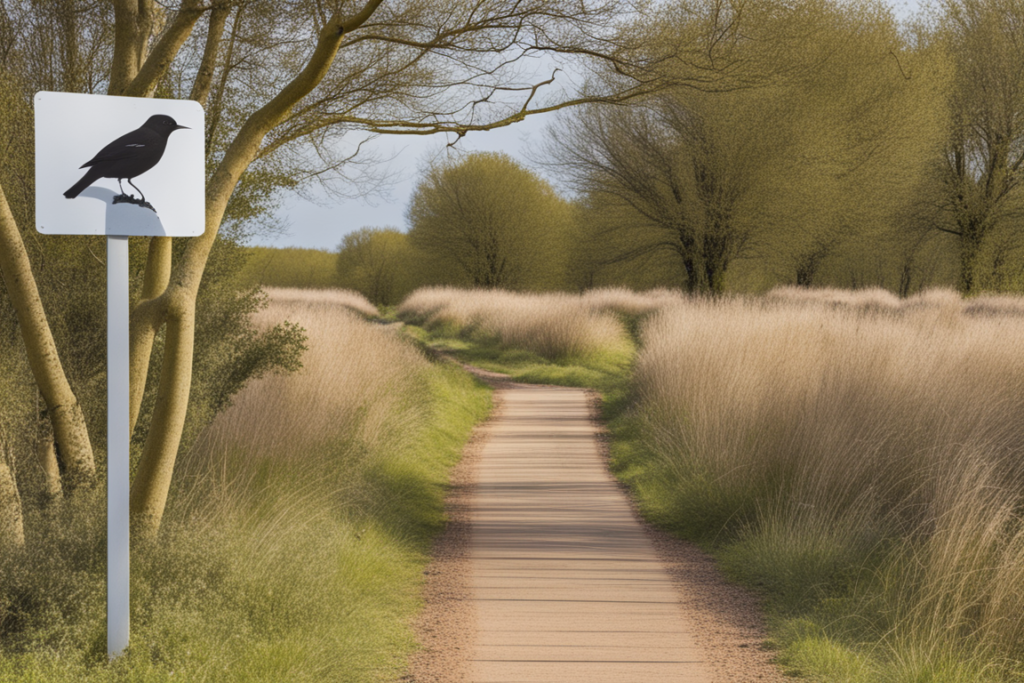
Responsible Birding Practices:
1. Feed Wisely: Imagine offering your friend sugary candy every day. Use bird feeders responsibly by keeping them clean and free of mold. Avoid using artificial food and luring them to sensitive areas like parks and nature reserves. Let birds find their natural food sources whenever possible. Most especially, do not use methods of attracting birds like offering artificial food in heavily birded areas.
2. Share Sightings with Care: Imagine accidentally revealing your friend’s hiding spot during a game. Report your bird sightings responsibly, but avoid revealing sensitive nest locations. Remember, birding is a shared activity, so follow the birding code of ethics to ensure fair play and respect for all. Share bird observations freely but stick to publicly available bird sightings, so as not to disrupt nesting birds and the likes.
3. Be a Habitat Hero: Imagine planting a little garden for your friend. Support organizations that create bird-friendly habitats. Even planting native plants in your own garden can attract birds naturally, offering them food and shelter. Small actions can make a big difference!
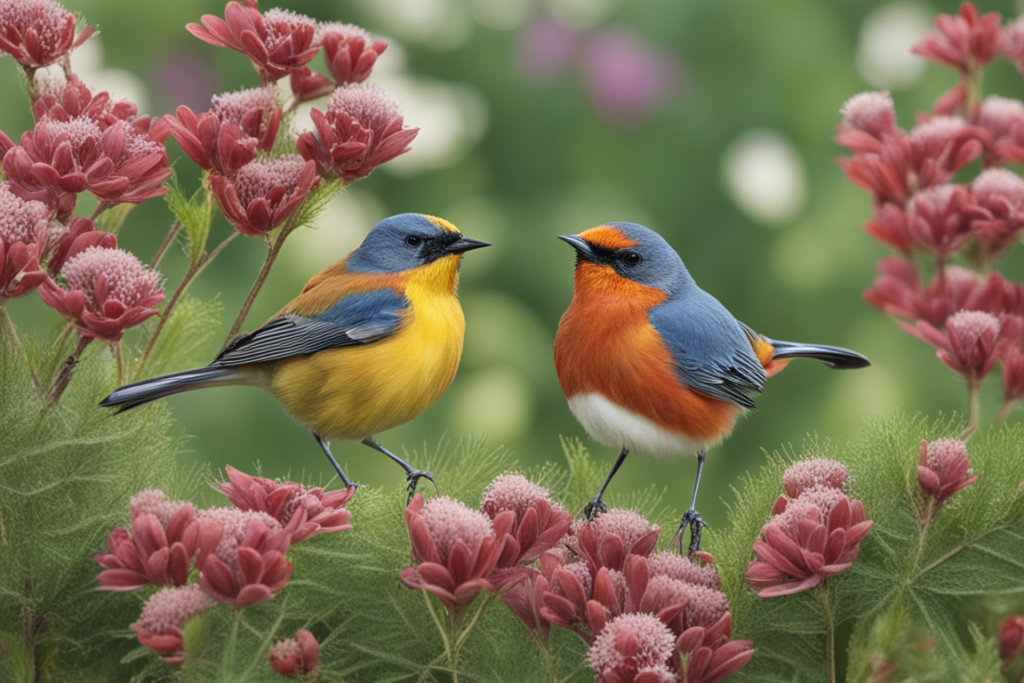
4. Be a Good Sport: Imagine hogging the swing set at the park. Share your knowledge and experiences with other birders, but avoid crowding or monopolizing viewing areas. Courtesy and respect go a long way, whether you’re birding alone or with a group.
Ethical Birdwatching Techniques:
1. Learn Their Language: Imagine trying to talk to someone but not understanding their language. Understanding bird calls and behaviors helps you identify them accurately and avoid misinterpreting their actions. Imagine mistaking a bird’s warning chirp for an invitation to come closer!
2. Choose Wisely: Imagine using a giant spotlight to read a book at night. Opt for binoculars and scopes that won’t disturb birds with bright lights or loud clicks. Think of them as powerful tools that should be used with care.
3. Mind the Night: Imagine trying to sleep with someone shining a flashlight in your face. Avoid using bright lights near nesting areas or when birding at night. Nocturnal birds rely on darkness for hunting and navigation, and sudden light can be disorienting for them.
4. Support Conservation: Imagine joining a club to protect your favorite park. Join organizations like the American Birding Association and contribute to research and conservation efforts. Your support helps protect bird populations for future generations.
Additional Considerations:
1. Leave Fido at Home: Imagine bringing your playful dog to a library. Unless your dog is a well-trained service animal, leave it at home. Dogs can stress birds and disrupt their natural behavior, like chasing them away from their food sources. Avoid stressing birds by being a responsible dog owner.
2. Group Birding Etiquette: Imagine joining a band and playing your instrument super loud. When birding with others, be mindful of noise and group impact on the environment. Follow your group leader’s instructions and respect other birders’ space. Remember, birding is about enjoying the birds, not disturbing them. Keep the birds and their environment undisturbed.
3. Extra Caution in Sensitive Areas: Imagine playing near a fragile sculpture. Pay close attention to signs and regulations in areas with protected nesting sites, endangered species, or fragile habitats. These areas might require special permits or limitations on access. Following the rules helps protect these vulnerable species and their delicate homes.
4. Share the Love of Birds: Imagine telling everyone about your favorite book. Spread the word about ethical birding guidelines! Talk to friends and family about responsible birding practices, and report any perceived unethical birding behavior you witness to relevant authorities. Remember, education and awareness are key to protecting birds.
Also read: The Pleasures of Bird Watching as a Hobby
Becoming a Responsible Birder: Simple Steps for Bird Watching
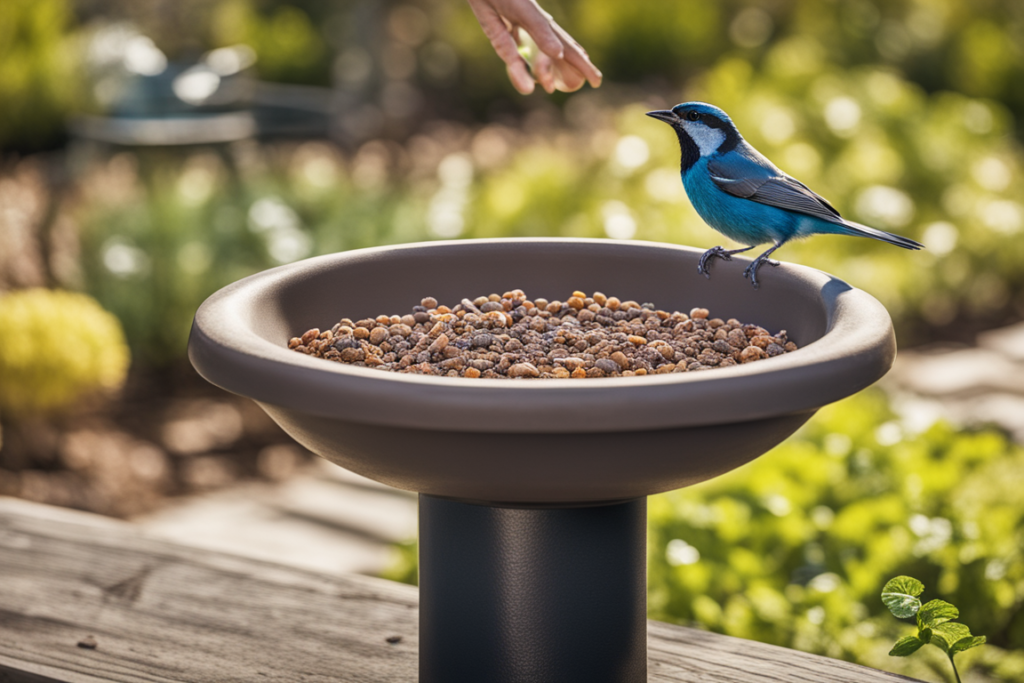
Bird watching is a wonderful way to connect with nature and observe amazing birds. But be mindful, these creatures are wild birds and they deserve our respect. By following a few basic guidelines, you can help birds thrive and be a responsible birder.
Be Quiet and Mindful: Birds need peace to raise young, find food, and stay safe. So, move quietly, stay on marked paths, and avoid loud noises so as not to cause habitat disturbance. Think of it like visiting a library – you wouldn’t want to be disruptive, right?
Create Bird Homes: Birds need healthy habitats! Support groups that make bird-friendly areas, plant native flowers in your garden, and avoid harsh chemicals. Even small things like feeders or leaving fallen leaves can help them find food and hide from danger.
Help Birds in Need: Some birds face challenges like losing their homes or changing weather. Joining groups like the American Birding Association helps fund research and protection. Every bit counts in keeping these birds healthy for future generations!
Share Your Love of Birds: Tell your friends and family about the birds you see, how to watch them respectfully, and invite them on birding adventures! Find your fellow birders and create your own birding community. By sharing your knowledge, we can create a world where birds and people can peacefully coexist.
Remember: These small creatures play a vital role in our planet’s health. By following these simple steps, you can be a responsible birder and make a positive difference for birds everywhere! Thoughtful birding is essential if we are to protect these birds.
Bonus Tip: Learn about the birds you see! Understanding their behavior and needs helps you appreciate them more and ensures you watch them responsibly. Many helpful apps and websites can assist you, like eBird and Merlin Bird ID.

